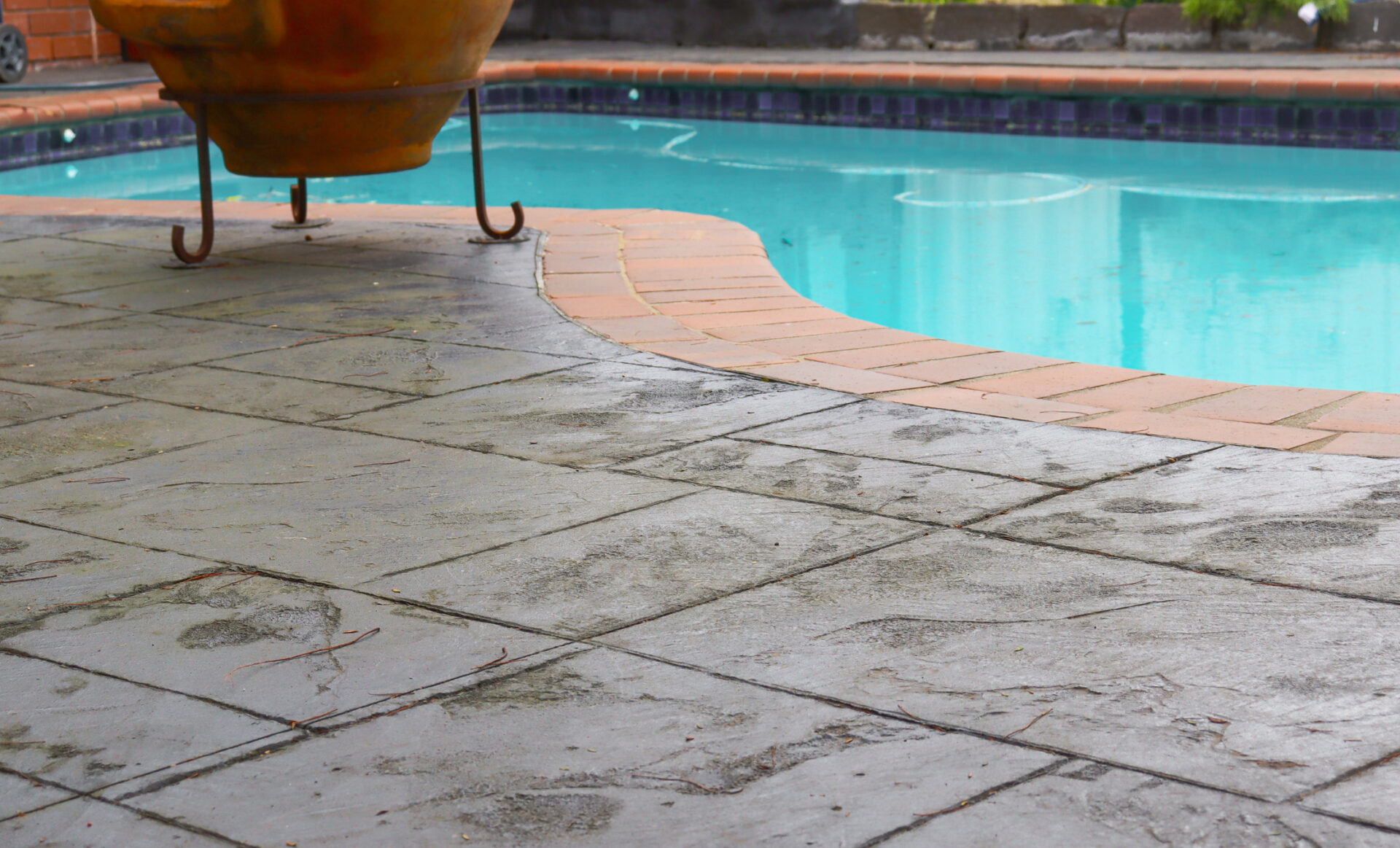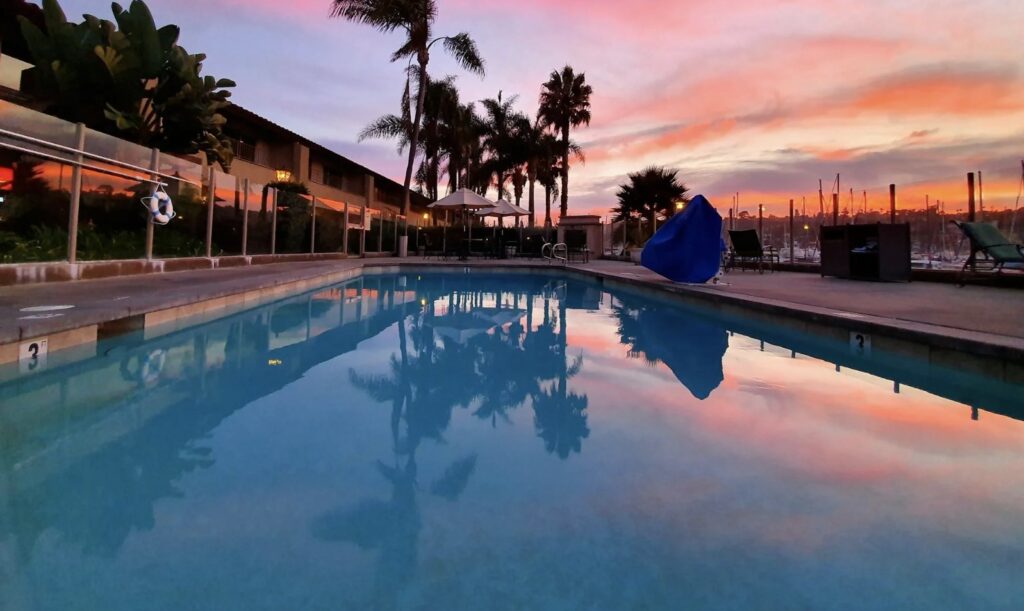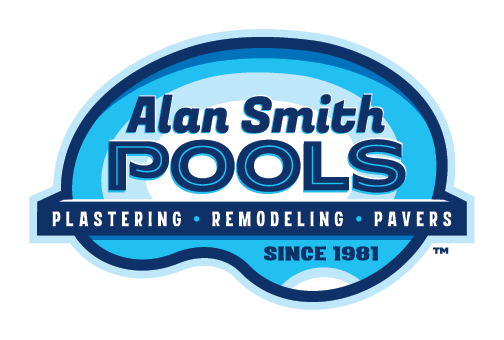Introduction
When considering the installation of a swimming pool, homeowners often find themselves deciding between fiberglass pools and concrete pools. Both types offer unique advantages and challenges, making it crucial to select the right one based on individual needs and preferences.
Why Choosing the Right Pool Type is Crucial for Homeowners?
Selecting the appropriate pool type impacts not only initial costs but also long-term maintenance, durability, and overall enjoyment. The choice can significantly influence property value and ongoing expenses related to pool upkeep.
What You’ll Learn in This Article
In this article, we will explore:
- A detailed cost comparison between fiberglass and concrete pools.
- Durability and maintenance requirements.
- Aesthetic appeal and design features.
- Energy efficiency considerations.
- Resale value impact on property marketability.
By the end, you’ll have a comprehensive understanding of which pool type best suits your needs.
1. Cost Comparison: Fiberglass vs Concrete Pools
Key Factors Influencing Pool Installation Costs
The total cost of installing a pool can vary greatly depending on several factors:
- Size: Larger pools naturally incur higher costs.
- Design Complexity: Custom shapes and intricate designs increase expenses.
- Location: Geographic location impacts labor costs, permit requirements, and material availability.
Fiberglass Pool Costs
Fiberglass pools are pre-fabricated and come with specific cost structures:
- Average Installation Price Range: $45,000 – $75,000
- Maintenance Expenses: Approximately $400 annually
- Installation Timeline: Typically 3 – 5 weeks
Fiberglass pools require minimal maintenance due to their smooth, non-porous surfaces which resist algae growth. They are often chosen for their durability and lower long-term costs.
Concrete Pool Costs
Concrete pools offer extensive customization but come with additional expenses:
- Average Installation Price Range: $50,000 – $90,000
- Potential Additional Expenses:Permits
- Landscaping adjustments
- Custom features such as waterfalls or spas (potentially adding up to $25,000)
- Installation Duration: Generally spans 6 – 10 weeks
Concrete pools demand more intensive maintenance due to their porous nature. Regular cleaning and chemical treatments are necessary to maintain water quality.
Side-by-Side Cost Comparison Table
| Feature | Fiberglass Pools | Concrete Pools |
|---|---|---|
| Installation Cost | $45,000 – $75,000 | $50,000 – $90,000 |
| Maintenance Cost (Annual) | ~$400 | Higher due to frequent cleaning |
| Installation Time | 3 – 5 weeks | 6 – 10 weeks |
| Customization Options | Limited | Unlimited |
For those interested in enhancing their pool’s longevity and value through resurfacing or the addition of salt systems, services like pool resurfacing in La Habra Heights or exploring salt systems for pools could be beneficial.
2. Durability and Maintenance Requirements
Fiberglass Pools: Pros and Cons
Pros:
- Gel Coat Finish Durability: The gel coat finish on fiberglass pools provides a robust layer that is highly resistant to cracks and damage. This ensures long-term durability, making it less likely to suffer from structural issues.
- Minimal Maintenance Requirements: Fiberglass pools are known for their low maintenance needs. The non-porous surface helps in easy algae control, reducing the frequency and intensity of cleaning sessions. This can significantly lower the pool maintenance cost over time.
Cons:
- Limited Design Options: One of the primary drawbacks of fiberglass pools is their limited design flexibility. Typically, these pools are pre-made in factories and come with size restrictions—up to 16ft wide, 40ft long, and 8.5ft deep.
- Pre-Made Smooth Surface Benefits: While the smooth surface of a fiberglass pool offers a sleek appearance and easy maintenance, it does limit customization options compared to other types of pools.
Concrete Pools: Pros and Cons
Pros:
- Rigid Interior Finishes and Longevity: Concrete pools stand out for their rigid interior finishes, which contribute to their exceptional longevity. These pools can last several decades with proper care, though they do require re-plastering every 10-15 years.
- Unlimited Design Possibilities: Unlike fiberglass pools, concrete pools offer virtually unlimited customization options in terms of shape, size, and depth. This makes them an excellent choice for homeowners looking to create unique designs or features like vanishing edges or natural pond-like appearances.
Cons:
- Regular Maintenance Needs: Concrete pools necessitate regular maintenance activities such as frequent cleaning and scrubbing to prevent algae buildup due to their more porous surfaces.
- Customizable Interiors with Tiles or Pebbles: While customizable interiors like tiles or pebbles provide aesthetic benefits, they also require meticulous upkeep to maintain their look and functionality as discussed here.
The choice between fiberglass and concrete pools involves weighing these pros and cons against personal preferences and priorities such as budget, desired design flexibility, and willingness to commit to ongoing maintenance tasks.
By understanding these aspects of durability and maintenance requirements, homeowners can make informed decisions that align with both their lifestyle needs and long-term property goals.
Concrete Pools: Pros and Cons
Pros:
- Rigid Interior Finishes and Longevity: Concrete pools are known for their robust structure, with a lifespan that can extend beyond decades. The need for re-plastering every 10-15 years ensures the pool retains its integrity and aesthetic appeal.
- Unlimited Design Possibilities: Homeowners can customize concrete pools to any shape, size, or depth. This flexibility allows for unique features such as vanishing edges or natural pond-like appearances.
Cons:
- Regular Maintenance Needs: Concrete pools require more frequent cleaning and scrubbing compared to fiberglass pools. The porous nature of concrete makes it prone to algae growth, demanding consistent upkeep.
- Customizable Interiors: While offering a range of interior finishes like tiles or pebbles, customized interiors add to the pool maintenance cost. Frequent cleaning and potential repairs become necessary to maintain the desired look.
For those interested in exploring unique finishes, options like Crystal Blue Microfusion and Aqua Marine Gemstone offer exquisite choices for a personalized touch.
3. Aesthetic Appeal and Features Comparison
Fiberglass Pools: Aesthetics & Features Overview
Fiberglass pools are often praised for their sleek and smooth surface, which not only enhances the aesthetic appeal but also promotes safety with anti-slip texture options. This feature is particularly beneficial for families with children or elderly members. The non-porous surface of fiberglass pools helps in maintaining a clean and polished look over time, reducing the likelihood of stains and algae growth.
Design Aesthetics
While fiberglass pools may have limited design options compared to concrete pools, they still offer a modern aesthetic that appeals to many homeowners. Available in popular color choices such as blue or turquoise, these pools can complement a variety of backyard themes and settings. The pre-made molds provide a streamlined look that fits well in contemporary landscapes.
Popular Features
- Smooth Surface: Reduces the risk of skin abrasions and makes cleaning easier.
- Anti-Slip Texture: Enhances safety, especially around pool steps and ledges.
- Color Choices: Predominantly blue or turquoise, providing a refreshing and inviting appearance.
For those interested in viewing various fiberglass pool designs, Alan Smith Pools’ construction gallery provides an excellent resource for inspiration.
Concrete Pools: Aesthetics & Features Overview
Concrete pools stand out due to their vast customization possibilities. Homeowners can achieve unique designs that fit their personal aesthetic preferences for pools. From vanishing edges that create an illusion of infinity to natural pond-like appearances, the design flexibility is virtually unmatched.
Design Versatility
Concrete pools can be tailored to any shape, size, or depth, making them ideal for those who seek a bespoke swimming experience. This allows for creative features such as integrated spas, fountains, or artistic tile work that adds a distinct touch to the pool area.
Customizable Surface Finishes
- Plaster: Traditional finish offering various color options.
- Sandstone: Provides a natural and earthy look.
- Custom Tile Work: Allows for intricate designs and patterns.
The versatility extends beyond just aesthetics; concrete pools can include functional enhancements like built-in seating areas or custom lighting setups. For more information on maintaining these custom features, refer to pool repair services offered by professionals.
Key Takeaways
Both fiberglass and concrete pools have unique aesthetic advantages. Choosing between them depends on your specific needs:
- Fiberglass Pools: Ideal for those seeking low-maintenance and modern designs with limited but appealing options.
- Concrete Pools: Perfect for homeowners desiring full customization and unique design elements tailored to specific tastes.
Exploring different design possibilities ensures you select the pool type that best matches your aesthetic preferences while enhancing overall property value. If you’re considering installing a new pool or need assistance with repair services like cracked swimming pool repair, Alan Smith Pools offers professional services to meet your needs.
Concrete Pools: Aesthetics & Features Overview
Concrete pools are known for their unique designs that can be tailored to suit different styles and preferences. Homeowners have the opportunity to create eye-catching features like vanishing edges or a natural pond-like look. These distinctive aspects not only enhance the pool’s visual appeal but also add a touch of luxury to any backyard.
Versatile Surface Finishes
One of the major benefits of concrete pools is the wide range of surface finishes available. Here are some options:
- Plaster: A traditional choice that offers a smooth, classic look.
- Sandstone: Provides a natural, earthy texture and appearance.
- Custom Tile Work: Allows for intricate designs and personalized touches, creating a truly unique pool.
These features make concrete pools an excellent choice for homeowners seeking a high degree of customization and aesthetic flexibility.
4. Energy Efficiency Considerations: Fiberglass vs Concrete Pools
Fiberglass Pools: Heat Retention Benefits Overview
Fiberglass pools offer notable advantages in terms of energy efficiency. One significant benefit is their ability to heat up faster compared to concrete pools. This is primarily due to the lower thermal conductivity of fiberglass, which means it doesn’t absorb heat as readily as concrete.
- Faster Heating Capabilities: The material composition of fiberglass allows for quicker heating times, benefiting homeowners who prefer a warm pool with minimal wait time.
- Superior Insulation Properties: Fiberglass pools retain heat longer thanks to their excellent insulation characteristics. This results in prolonged enjoyment of warmer water without the need for continuous heating, translating into energy cost savings over time.
The combination of these features makes fiberglass pools an attractive option for those particularly concerned about energy efficiency and heat retention.
Concrete Pools: Heat Retention Challenges Overview
Concrete pools, while offering unmatched design flexibility and durability, present certain challenges when it comes to maintaining water temperature. The higher thermal conductivity of concrete leads to several considerations:
- Need for Regular Chemical Treatments: To maintain optimal water temperature levels, concrete pools require frequent chemical treatments. This not only keeps the water balanced but also prevents issues such as algae growth that can be exacerbated by fluctuating temperatures. You might consider exploring Pentair chemical pool automation options to simplify this process.
- Energy Consumption: Due to the porous nature of concrete, these pools tend to lose heat more rapidly. This necessitates more frequent heating and potentially higher energy bills, especially during colder months or in regions with cooler climates.
For homeowners focused on energy efficiency and reducing operational costs, understanding these differences is crucial when deciding between a fiberglass or concrete pool.
Explore more about pool surfaces and resurfacing options to enhance the longevity and efficiency of your pool installation.
If you are considering a new pool installation or renovation project, it’s essential to discover what makes a good pool contractor. Understanding these aspects can significantly influence the success of your project.
Concrete Pools: Heat Retention Challenges Overview
Concrete pools face unique challenges in managing heat retention. Due to their porous nature, they often lose heat more rapidly compared to fiberglass pools. This requires homeowners to invest in regular chemical treatments and heating solutions to maintain optimal water temperature levels throughout the year.
Concrete’s higher thermal conductivity makes it a less efficient insulator. Consequently, fiberglass pool heat retention outperforms concrete in energy efficiency.
For more information on pool customization and maintenance, including selecting the right pool tile, check out Alan Smith Pools’ residential photo gallery.
5. Resale Value Impact on Property Marketability
Fiberglass Pools: Resale Value Insights Overview
When considering the resale value of fiberglass vs concrete pools, it’s essential to understand how they impact property marketability.
Fiberglass Pools:
- Affordable Options: Fiberglass pools are an attractive choice for homeowners with limited budgets. The initial cost is generally lower than concrete pools, ranging from $45,000 to $75,000.
- Lower Long-term Maintenance Costs: One of the key advantages of fiberglass pools is their minimal maintenance requirements. With an average annual maintenance cost of about $400, they offer significant savings over time. This low maintenance aspect can be appealing to potential buyers looking for hassle-free pool ownership.
- Durability: The durable gel coat finish of fiberglass pools adds to their longevity, making them a reliable investment. Potential buyers often appreciate this durability as it translates into fewer repairs and upkeep in the future.
These factors contribute positively to the fiberglass pool resale value, making properties with these pools more marketable, especially among budget-conscious buyers seeking long-term savings.
Concrete Pools:
Concrete pools are known for their customization options and durability but come with higher maintenance costs and a longer installation timeline. Homeowners looking for unique designs and willing to invest in regular upkeep may find concrete pools more desirable.
For those interested in enhancing their property’s appeal through pool remodeling services offered by companies like Alan Smith Pools, these services can further boost property value. Additionally, exploring new pool deck coatings through Alan Smith Pools can also enhance the aesthetic and functional appeal of your pool area.
Properties featuring fiberglass pools often see a positive impact on resale value due to their affordability and low maintenance benefits. This makes them a popular choice among potential homebuyers looking for cost-effective yet durable pool options.
By understanding these nuances, homeowners can make informed decisions about which type of pool best aligns with their financial goals and long-term property marketability aspirations.
Explore remodeling projects that showcase how updated pool features can elevate your property’s value and appeal.
Concrete Pools: Resale Value Insights Overview
Concrete pools often have a higher perceived value among homebuyers due to their durability and the perception of being a quality investment. This type of pool enhances a home’s appeal with unique features like custom designs and lavish landscaping.
Key Factors Affecting Resale Value
- Durability: Concrete pools are made from long-lasting materials that only need re-plastering every 10-15 years.
- Customization: With concrete pools, you can create any shape, size, or depth, which adds unique aesthetic value to your property.
- Landscaping Integration: Concrete pools can seamlessly incorporate luxurious landscaping elements, further enhancing the overall appeal of your home.
Keywords: resale value of fiberglass vs concrete pools, fiberglass pool resale value, How does each type affect a home’s resale potential?, concrete pool resale value.
Conclusion
Choosing between fiberglass and concrete pools involves careful consideration of multiple factors:
- Cost: Fiberglass pools generally offer a lower upfront cost and reduced maintenance expenses, while concrete pools may require a higher initial investment but provide extensive customization possibilities.
- Durability: Concrete pools are renowned for their longevity and robustness, necessitating periodic re-plastering. Fiberglass pools benefit from a durable gel coat finish, requiring minimal maintenance.
- Aesthetics: Concrete pools excel in custom design options, allowing for unique shapes and finishes like tile or plaster. Fiberglass pools, on the other hand, present sleek, modern aesthetics with limited design choices.
- Energy Efficiency: Fiberglass pools retain heat better and require less energy to maintain optimal temperatures. Concrete pools might need more chemical treatments and energy to manage water temperature.
- Resale Value: Both pool types can enhance property value, with concrete pools often perceived as high-end investments due to their customizable nature.
Making an informed decision hinges on your budget, aesthetic preferences, maintenance willingness, and long-term plans for your property. Whether you lean towards the quick installation and low upkeep of fiberglass or the bespoke elegance and durability of concrete, each option offers distinct benefits tailored to different homeowner needs.
FAQs (Frequently Asked Questions)
What are the primary differences between fiberglass and concrete pools?
Fiberglass pools are pre-made, offering a smooth surface and minimal maintenance, while concrete pools are customizable in shape and size but require more frequent upkeep. Fiberglass pools tend to have lower installation costs and quicker installation times, whereas concrete pools can incur higher costs due to permits and landscaping.
How do the costs of fiberglass pools compare to concrete pools?
The cost of fiberglass pools typically falls within a lower range for installation compared to concrete pools. Factors influencing total cost include size, design complexity, and location. Concrete pools may have additional expenses such as permits and landscaping, leading to a longer installation duration.
What are the maintenance requirements for fiberglass and concrete pools?
Fiberglass pools require minimal maintenance due to their gel coat finish that helps control algae growth. In contrast, concrete pools need regular cleaning and re-plastering every 10-15 years, making them more labor-intensive in terms of upkeep.
Which type of pool offers better energy efficiency?
Fiberglass pools generally provide better energy efficiency due to their superior insulation properties, which allow for faster heating capabilities and longer heat retention. Concrete pools may require more frequent chemical treatments to maintain optimal water temperatures throughout the year.
How does the aesthetic appeal differ between fiberglass and concrete pools?
Fiberglass pools offer a modern aesthetic with limited design options but come in popular colors like blue or turquoise. Concrete pools provide unique design possibilities, including custom shapes and various surface finishes like plaster or tile work, allowing for greater personalization.
What impact do fiberglass and concrete pools have on property resale value?
Fiberglass pools can enhance property value by offering lower long-term maintenance costs, appealing to budget-conscious buyers. Conversely, concrete pools are perceived as a quality investment that boosts overall home appeal through unique features, potentially increasing their resale value significantly.







